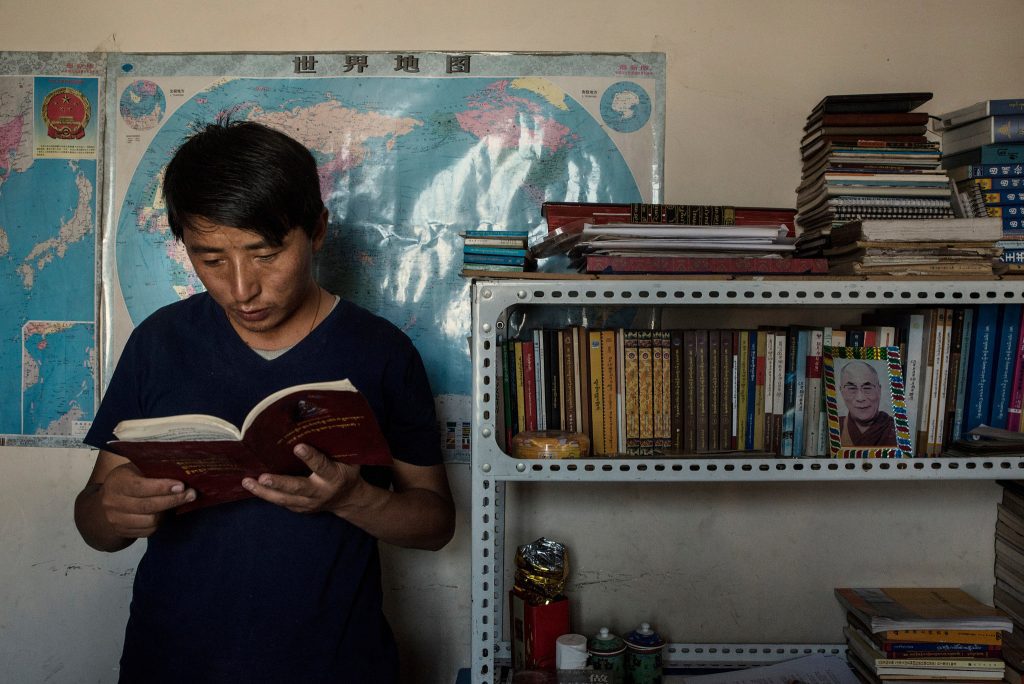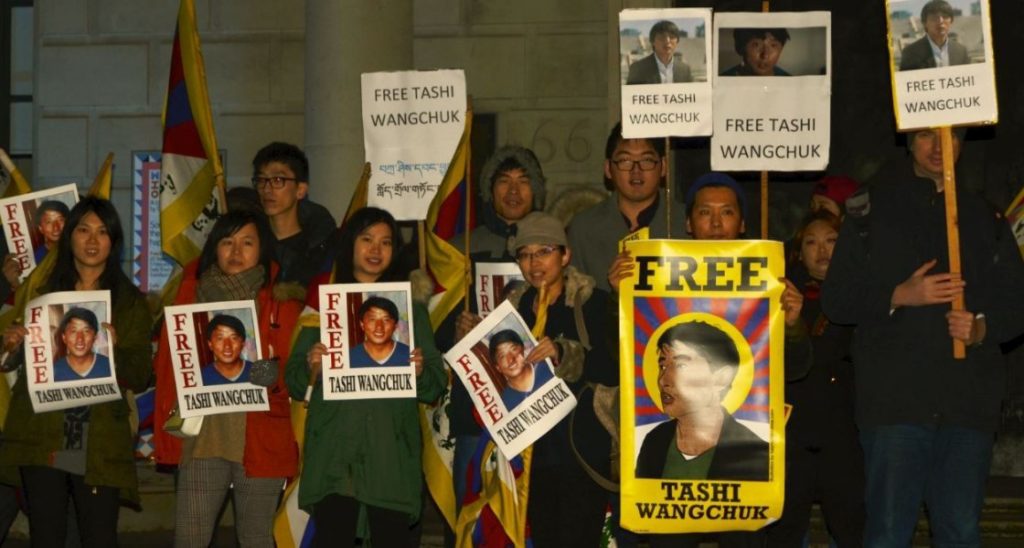
Tibetans Celebrate as Language Advocate Tashi Wangchuk Finally Released
The former political prisoner was arrested in November 2015 for his work defending Tibetan language rights
The language advocate and political prisoner Tashi Wangchuk has finally been released after completing a five-year prison sentence. Tashi Wangchuk was released today, 28 January 2021, five years and one day after he was detained.
His lawyer, Liang Xiao Jun, tweeted the news earlier today, stating that he had been informed that Tashi Wangchuk had been brought back to his sister’s home in Tridu County in Kham.

Tashi Wangchuk before his arrest. (Photo: The New York Times)
Tashi Wangchuk is a shopkeeper from Kyegundo in the eastern Tibetan region of Kham. He came to public attention in November 2015 after giving an interview to the New York Times, in which he talked about his peaceful language advocacy to protect the Tibetan language. The interview resulted in an article and a short video, which showed Tashi Wangchuk traveling to Beijing in an attempt to file a complaint against his local government after it closed Tibetan language classes in his local area. The closure of Tibetan classes left his teenage nieces without a means of learning Tibetan, prompting fears by Tashi Wangchuk that future generations of Tibetans may grow up unable to speak their native language.
The Tibetan language has become increasingly marginalised under China’s so-called “bilingual education” policy, which in practice has seen Mandarin Chinese supersede it in schools, business and local government. The deliberate preparation by the Chinese Communist Party to dominate the language of instruction with Mandarin started as early as in the year 2000 in primary schools of Central Tibet. Ten years later, the bilingual education policy was announced for all the minority areas in China.
Throughout his language advocacy, Tashi Wangchuk emphasised that his actions were not political and had nothing to do with Tibet’s political status; he simply wanted Chinese authorities to comply with the country’s constitution, which enshrines the right of “minorities” (a term that Tibetans, as an occupied people, reject) to receive education in their own languages. Despite the repressive environment in Tibet, he insisted that his interview be put on the public record, rejecting the opportunity to make his remarks anonymously.

Tashi vigil protest outside the Chinese Embassy in London, 2017
From the moment Tashi Wangchuk was arrested, Free Tibet pushed for his release with a series of actions targeting the Chinese authorities, international governments, the European Union and United Nations. The international pressure from Tibet groups including Free Tibet drew significant attention to his case, with governments, United Nations human rights bodies and even linguists and writers pressing Beijing for his release.
After two years in detention, Tashi was tried behind closed doors in 2018. He was found guilty of “inciting separatism”, a state security crime, but handed a comparatively short sentence of five years in prison and a further five years of deprivation of political rights. The New York Times documentary, in which Tashi Wangchuk explains his work to protect the Tibetan language, was shown during the trial as evidence against him.
According to the update from his lawyer, Tashi Wangchuk is in good health, although this cannot be fully confirmed until Liang Xiao Jun can visit him or contact his sister.
Although Tashi Wangchuk has been released, he is still subject to five years of deprivation of political rights as part of his 2018 sentence. Tibet campaigners have pledged to continue monitoring Tashi Wangchuk’s case. Free Tibet will share any further information on his case as soon as we have it.
The struggle to protect the Tibetan language also continues. The news of Tashi Wangchuk’s release comes one year after the National People’s Congress Standing Committee made a public announcement that declared the teaching of so-called “minority languages” as unconstitutional. In two decades, the Tibetan language, which is one of the fifty-five State-recognised “ethnic minorities” languages, has undergone a pattern of systematic repression causing widespread concern and evermore determination amongst Tibetans to protect their language.
Information supplied by Tibet Watch

